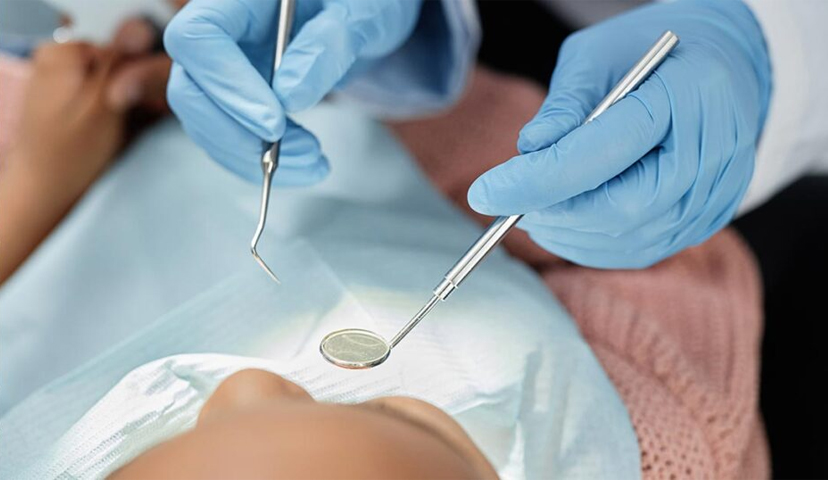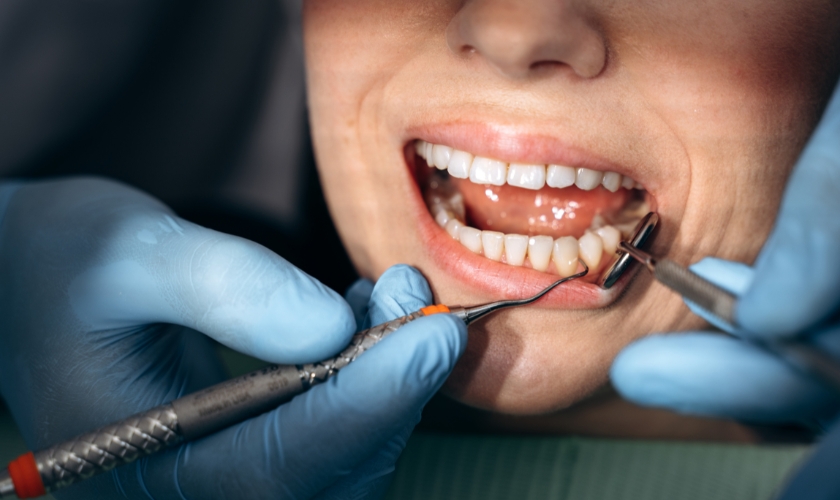How Often Should You Get a Dental Cleaning? Factors to Consider

When it comes to dental care, one question that often arises is, “How often should I get a dental cleaning?”
While it’s easy to assume that everyone needs to go every six months, the truth is, the answer isn’t the same for everyone. Each person’s oral health, habits, and lifestyle can impact how often they need to visit the dentist for a cleaning.
Understanding the factors that influence this decision can help you take control of your oral health and maintain a bright, healthy smile.
In this blog, we’ll explore why regular dental cleanings are so important and how often you should schedule them based on your unique needs. From age and health conditions to personal habits like smoking or your daily oral care routine, several factors play a role in determining the best cleaning schedule for you.
Keep reading to learn more about how to work with your dentist to create the right plan and avoid potential dental problems in the future. Your smile deserves the best care—let’s dive in!
Standard Recommendations for Dental Cleanings
Dental professionals generally recommend getting a dental cleaning every six months. This frequency is based on the average person’s ability to maintain oral health with regular at-home care, preventing plaque buildup and reducing the risk of cavities and gum disease. However, these guidelines can vary depending on individual health factors and habits.
- Most people benefit from a cleaning every six months.
- This schedule helps maintain optimal oral hygiene.
- Regular cleanings prevent the buildup of plaque and tartar.
- Dentists use these cleanings to monitor for early signs of dental issues.
- Following the standard recommendation helps keep your smile healthy.
By sticking to these guidelines, you can protect your oral health and avoid potential dental problems in the future. Regular cleanings also give your dentist the chance to assess your teeth and gums for any emerging concerns.
Factors That Affect How Often You Should Get a Cleaning
While six months is a general guideline, your oral health needs may require a different schedule. Several factors can impact how often you need dental cleanings. It’s essential to consider these when planning your visits.
- Age: Children, teens, and older adults may need more frequent cleanings.
- Oral hygiene habits: Poor brushing or flossing habits can lead to plaque buildup.
- Medical conditions: Conditions like diabetes or heart disease can affect oral health, requiring more frequent cleanings.
- Smoking or tobacco use: Smoking increases the risk of gum disease and stains teeth, making more frequent visits necessary.
- Pregnancy: Hormonal changes can affect gums, leading to an increased need for cleanings.
- Family history: If your family has a history of dental issues, you may need more frequent visits.
- Current oral health condition: If you have gum disease or other issues, your dentist may recommend more frequent cleanings.
The Role of Your Dentist in Deciding the Cleaning Frequency
Your dentist plays a crucial role in determining how often you should get a dental cleaning. During regular checkups, your dentist assesses the overall health of your teeth and gums and decides if your cleaning schedule needs adjustments. This personalized approach ensures you receive the care your oral health requires.
- Your dentist examines your mouth for signs of plaque, tartar, and gum disease.
- Based on the results, your cleaning schedule can be customized.
- Dentists can suggest more frequent visits if early signs of oral issues are found.
- Regular exams help in tracking changes to your oral health.
- A general dentist in Auburn, CA, will provide a plan that’s tailored to your unique needs.
Signs You Might Need More Frequent Cleanings
In some cases, you may need dental cleanings more often than the standard six-month interval. Certain warning signs indicate that your oral health might benefit from more frequent cleanings. Pay attention to these signals to maintain your oral health.
- Gum disease or gingivitis: Swollen, bleeding gums or persistent bad breath may indicate gum disease.
- Accumulation of plaque and tartar: If you notice plaque buildup or your teeth feel rough, it may be time for a cleaning.
- Sensitivity or discomfort: Increased tooth sensitivity or discomfort could signal the need for a cleaning.
- Bad breath (halitosis): Chronic bad breath is a common sign of gum disease or plaque buildup.
How Oral Health Habits Impact Cleaning Frequency?
Your daily habits directly affect how often you should get a dental cleaning. Maintaining a solid oral care routine can reduce the need for more frequent visits, while poor habits may require you to visit the dentist more often. Regular cleanings help maintain the results of good habits.
- Brushing twice a day and flossing daily can reduce plaque buildup.
- Eating a balanced diet and limiting sugary foods can improve oral health.
- Using fluoride toothpaste strengthens teeth and prevents cavities.
- Regular visits to your dental cleanings in Auburn can help monitor oral hygiene effectiveness.
Tips for Patients to Reduce the Need for More Frequent Cleanings
By maintaining consistent oral health habits, you can reduce the need for extra cleanings. Preventive care at home is just as crucial as professional cleanings. Here are a few tips to help minimize the frequency of your dental visits.
- Brush your teeth properly, using a soft-bristled toothbrush and fluoride toothpaste.
- Floss daily to remove plaque and food particles between your teeth.
- Drink plenty of water to help wash away food debris and bacteria.
- Avoid smoking or using tobacco products, as they contribute to plaque buildup and gum disease.
- Limit sugary foods and drinks, as they can cause cavities.
Your oral health is unique, and so is the frequency of your dental cleanings. While the standard recommendation of every six months works for most, various factors—like your age, habits, and current oral health—can influence the ideal schedule. Pay attention to your body’s signals and work closely with your dentist to maintain a plan that best supports your smile. Regular cleanings not only protect your teeth but also ensure you stay on top of any emerging dental issues!




